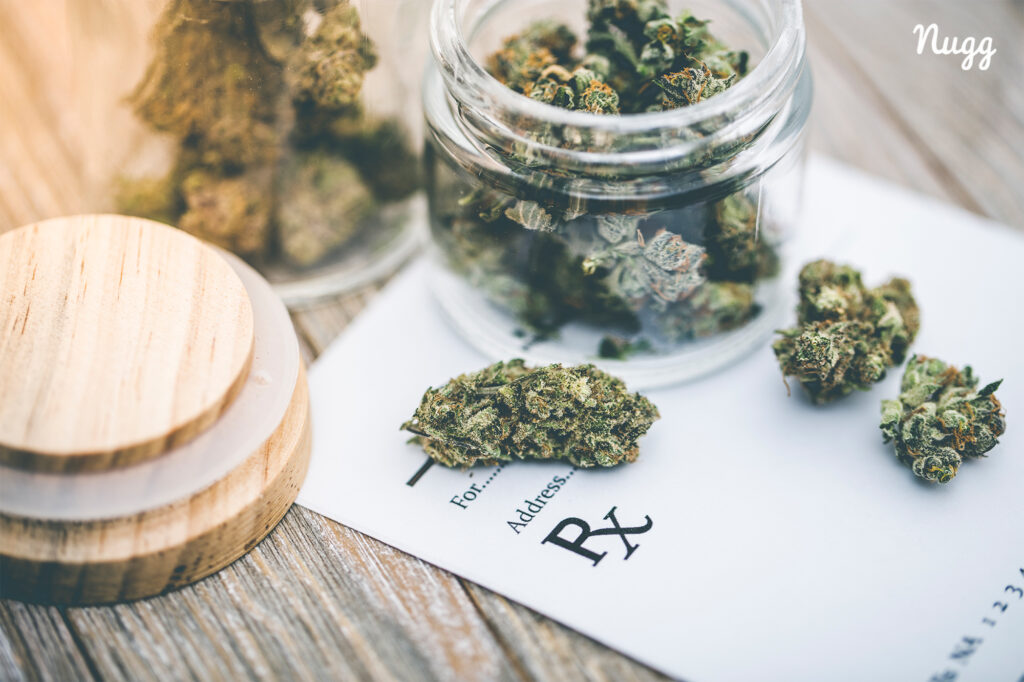
Carpal tunnel syndrome happens when there is too much pressure on the median nerve, which spans from the forearm to the palm of the hand. This compression happens in the carpal tunnel, the canal in the wrist through which the median nerve and tendons run through to provide flexibility and sensation to the fingers.
Carpal tunnel syndrome (CTS) is a common cause of neuropathic pain, numbness, and weakness in the hand and wrist. CTS affects 5% of people in the United States, with more than 300,000 new cases per year.
CTS is sometimes called median nerve compression. In 1854, Sir James Paget first detailed the condition when he treated a patient with pain and numbness in his hand due to a wrist fracture.1 More than 75 years later, the first carpal tunnel surgery was undertaken, a treatment for severe CTS that is still used today.
With an estimated 71% of patients needing surgical treatment for CTS, experts continue to search for less invasive ways to treat severe carpal tunnel syndrome. In recent years, healthcare providers have been testing an incision-less treatment called TCTR to release pressure on the median nerve. While studies on this method are ongoing, clinical results are promising.
What Causes Carpal Tunnel Syndrome?
Carpal tunnel syndrome is caused by a combination of external factors that lead to an increase in pressure on the median nerve and tendons in the carpal tunnel. Once compressed, the nerve and tendons swell, which begins to cut off sensation to the hand and fingers.
The medical community states that carpal tunnel syndrome is most likely a combination of factors that contribute to pressure on the median nerve and tendons within the carpal tunnel instead of the nerve itself being the issue. The risk factors for developing CTS include the following:
- Repetitive, forceful motions involving the fingers or wrists
- Long-term use of vibrating tools
- Family history of smaller carpal tunnels
- A wrist fracture or dislocation
- Sex (CTS is more common in women)
- Older age
- Medical conditions that cause nerve damage, like diabetes
- Inflammatory conditions like rheumatoid arthritis
- Other medical conditions
- Obesity
- Body changes associated with pregnancy
- Certain medications
Signs & Symptoms of Carpal Tunnel Syndrome
Carpal tunnel syndrome usually affects the hand, wrist, and all fingers except the little finger. If you have carpal tunnel syndrome, you may experience one or more of the following symptoms:
- Numbness in your fingers or hand (common first sign of CTS)
- Tingling in your fingers or hand (common first sign of CTS)
- Hand weakness and loss of movement
- Loss of sensation in your fingertips
- Difficulty or inability to use your hand for certain tasks
As CTS progresses, its symptoms gradually increase in frequency and severity. In severe cases, the muscles at the base of the thumb can visibly shrink due to loss of sensation and movement.
Wearing a wrist splint, taking medication, making certain lifestyle modifications, and having surgery are common treatments for CTS. In some cases, certain medications, like the anticonvulsant drug gabapentin, are prescribed off-label for carpal tunnel syndrome neuropathy with no noted side effects.2
Even after treatment, some people with severe cases of CTS do not gain total relief.
Can Cannabis Help Alleviate Certain Symptoms of Carpal Tunnel Syndrome?

Cannabis has not been found to prevent carpal tunnel syndrome, and no studies have explored the association between cannabis and neuropathic pain caused by CTS. However, experts have studied cannabis and its effect on inflammatory and neuropathic pain caused by other conditions.
- A 2018 review on medical cannabis and neuropathic pain stated, “Nearly 20 years of clinical data support the short-term use of cannabis for the treatment of neuropathic pain.” However, the researchers also caution that more long-term research is needed to determine potential adverse effects.3
- Twenty-nine patients with peripheral neuropathy were treated with topical CBD oil and placebo in a 2020 randomized controlled trial. In the CBD group, researchers observed a significant reduction in intense pain and sensations caused by neuropathy. The topical CBD was well tolerated, with no adverse events.4
- A 2021 review of in vivo studies found that a combination of CBD and THC, or just CBD or CBG, provides anti-inflammatory effects. However, THC was found to have no effect on pro- or anti-inflammatory cytokines.5 In a recent 2022 review on cannabis use for sleep disorders, the researchers found that the use of cannabis in chronic pain patients helped reduce sleep disturbances.6
Although the above studies were not conducted directly in relation to carpal tunnel syndrome, we can extrapolate some of the results to symptoms of CTS. Cannabis, specifically CBD, appears to be able to reduce inflammatory and neuropathic pain. Furthermore, CBD seems to exert these effects without significant adverse side effects.
While the research is limited because it does not focus on CTS pain, and the methodologies of the studies are not identical, it underscores the need for more extensive, long-term clinical trials that investigate how CBD, THC, and cannabis, in general, can be most safe and effective for people with inflammatory and neuropathic pain.
Because these studies do not directly consider pain caused by carpal tunnel syndrome, it must be stated that medical cannabis is not guaranteed to provide relief and should not be used in place of proper treatment for CTS. Although many states list chronic pain as a qualifying condition for medical cannabis, there are still potential negative consequences to its use.
It is important to note that many available CBD products are not tested and may contain harmful ingredients, so make sure to look for lab-tested, state-approved products. THC may be beneficial for neuropathic pain, but it can also cause adverse events and seems to be best tolerated with CBD. Cannabis can also negatively interact with certain medications or anesthesia, so make sure to consult with your healthcare provider before using it when you have carpal tunnel syndrome or are going into surgery for CTS.
If you are going to use medical cannabis for neuropathic pain caused by carpal tunnel syndrome, a topical formulation may be ideal. Patients have had positive results using CBD-only or CBD+THC topical oils, creams, and balms.
Legality and Doctor’s Recommendation
To determine if your state considers carpal tunnel syndrome to be a qualifying condition for medical cannabis, check out our Laws & Regulations section for the medical cannabis rules for your state.
If you find that your state recognizes carpal tunnel syndrome or its symptoms as a qualifying medical condition, you can seek a doctor’s recommendation to get your medical cannabis card in your state.
How NuggMD Can Help

NuggMD is the nation's leading medical cannabis technology platform, serving patients in over half the U.S. We’ve connected over 1,300,000 patients with their new medical cannabis doctors face-to-face via our state-of-the-art telemedicine platform.
We believe that every human being has the right to explore the benefits of medical cannabis and are fully committed to helping each patient explore all of their options in their journey to wellness. For further information on whether you qualify for medical cannabis, select your state.
Resources
- Simovic D, Weinberg DH. Carpal Tunnel Syndrome. Archives of Neurology. 2000;57(5):754. doi:https://doi.org/10.1001/archneur.57.5.754
- Eftekharsadat B, Babaei-Ghazani A, Habibzadeh A. The Efficacy of 100 and 300 mg Gabapentin in the Treatment of Carpal Tunnel Syndrome. Iran J Pharm Res. 2015;14(4):1275-1280.
- Lee G, Grovey B, Furnish T, Wallace M. Medical Cannabis for Neuropathic Pain. Current Pain and Headache Reports. 2018;22(1). doi:https://doi.org/10.1007/s11916-018-0658-8
- Xu DH, Cullen BD, Tang M, Fang Y. The Effectiveness of Topical Cannabidiol Oil in Symptomatic Relief of Peripheral Neuropathy of the Lower Extremities. Curr Pharm Biotechnol. 2020;21(5):390-402. doi:10.2174/1389201020666191202111534
- Henshaw FR, Dewsbury LS, Lim CK, Steiner GZ. The Effects of Cannabinoids on Pro- and Anti-Inflammatory Cytokines: A Systematic Review of In Vivo Studies. Cannabis and Cannabinoid Research. 2021;6(3):177-195. doi:https://doi.org/10.1089/can.2020.0105
- AminiLari M, Wang L, Neumark S, et al. Medical cannabis and cannabinoids for impaired sleep: a systematic review and meta-analysis of randomized clinical trials. Sleep. 2021;45(2). doi:https://doi.org/10.1093/sleep/zsab234
The information in this article and any included images or charts are for educational purposes only. This information is neither a substitute for, nor does it replace, professional legal advice or medical advice, diagnosis, or treatment. If you have any concerns or questions about laws, regulations, or your health, you should always consult with an attorney, physician or other licensed professional.

